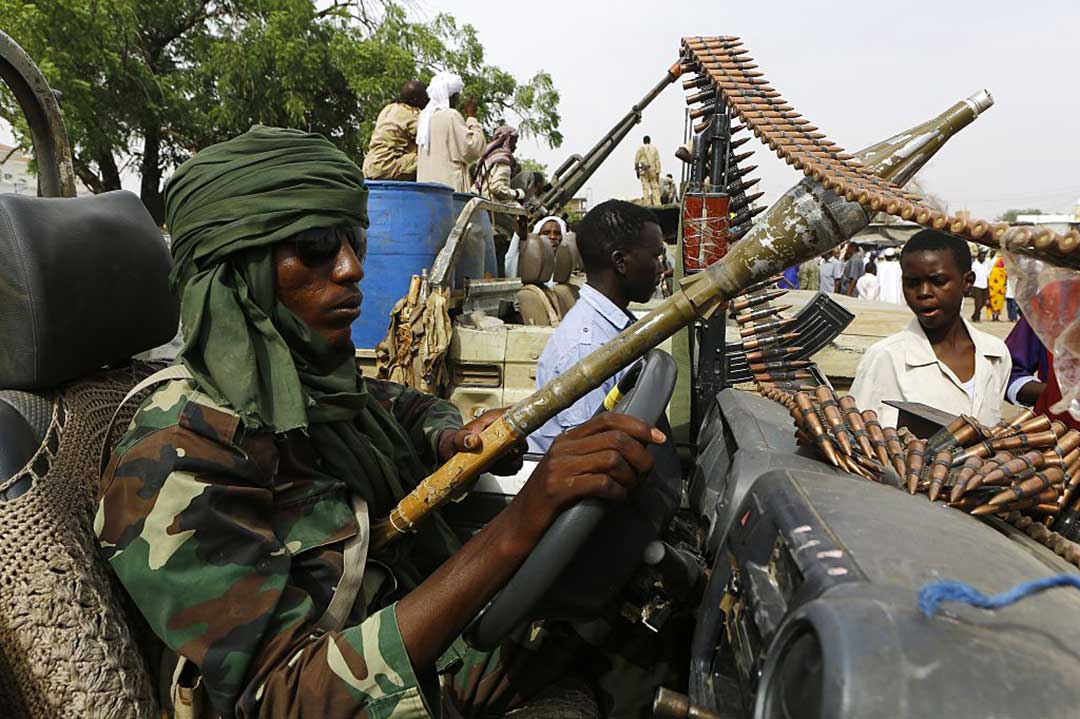RSF Advances Give It Control Over Half of Sudan
ADF STAFF
After nearly eight months of fighting, Sudan’s Rapid Support Forces (RSF) appears to be consolidating its control over the five states of the Darfur region along with parts of the capital, Khartoum.
At the same time, the Sudanese Armed Forces (SAF) has repeatedly fallen back, yielding more territory to the RSF while its leadership oversees operations from the eastern city of Port Sudan. The national government, led by SAF chief Gen. Abdel Fattah al-Burhan, controls Sudan’s central and eastern states, the Nile River north of Khartoum and Red Sea ports.
“The situation is moving, really, to a scenario like the one in Libya where the country is divided in two parts with two different governments and two armies,” Suliman Baldo, head of the Sudan Crisis Research Network, recently told the BBC.
On November 20, Baldo’s Sudan War Monitor reported the RSF took control of Jebel Aulia, a community 40 kilometers south of Khartoum. RSF fighters claimed a helicopter base south of Jebel Aulia and a lock-and-dam facility on the White Nile days earlier.
“The fall of Jebel Aulia opens the way into White Nile State, where the RSF’s next principal objective would be Ad Douiem/Abu Hibeira,” Baldo wrote. “However, an invasion of the state would be a significant logistical undertaking for which the RSF may be unprepared at the moment.”
In recent weeks, the RSF has taken control of key bridges over the Nile between Khartoum and the industrial area of North Khartoum. It also controls the Khartoum ends of three bridges across the White Nile.
The RSF-controlled Shambat bridge linking Khartoum to Omdurman, through which it moved fighters and supplies from Darfur, was destroyed in mid-November. The SAF and the RSF blame each other for demolishing the bridge, according to Radio Dabanga. One thing is clear: The loss of the bridge complicates the RSF’s ability to resupply its fighters in Khartoum.
RSF leaders have said their fighters respect the people and property of the regions they control. However, millions of fleeing residents and eyewitness accounts of summary executions of non-Arab residents of Darfur belie that claim.
In El Geneina, RSF fighters went door-to-door killing non-Arabs, Seif Nemir, who helped his family escape El Geneina, told the BBC. They also killed people trying to escape by road to Chad, he added.
“Those who are not killed are hiding,” Nemir said.
Fighting erupted in April over plans to integrate the RSF into Sudan’s military. Former dictator Omar Al-Bashir created the RSF in 2017 out of former Janjaweed, a Darfur-based militia he had used more than a decade earlier in a genocidal campaign to put down rebellions in the western regions of the country.
The RSF commander known as Hemedti finances its activities largely by smuggling gold from mines his family controls in Darfur. Baldo believes the RSF’s primary strategy is not to govern but, rather, to gain control over more of the country’s gold, which has become its primary source of revenue after the loss of South Sudan’s oil fields in 2011.
“(Governing) means you take on responsibilities for food, health, and security,” Baldo told Reuters.
The prospect of a Libya-like division prompted two Darfuri militias — the Sudan Liberation Movement led by Darfur Gov. Minni Arko Minnawi and the Justice and Equality Movement led by Jibril Ibrahim — to renounce their neutrality and side with the SAF in mid-November. The two militias had pledged to remain neutral as part of the 2020 Juba Peace Agreement signed with the national government.
Minnawi accused the RSF of “liquidating community activists and leaders and supplying weapons to the parties to the civil wars in South Darfur.”
Ibrahim denied RSF Deputy Commander Abdelrahim Dagalo’s claims that local militias would create any joint force with the RSF to secure Darfur.
“We cannot agree with them with blood on their hands, and they are accused of violating human rights,” Ibrahim said.


Comments are closed.